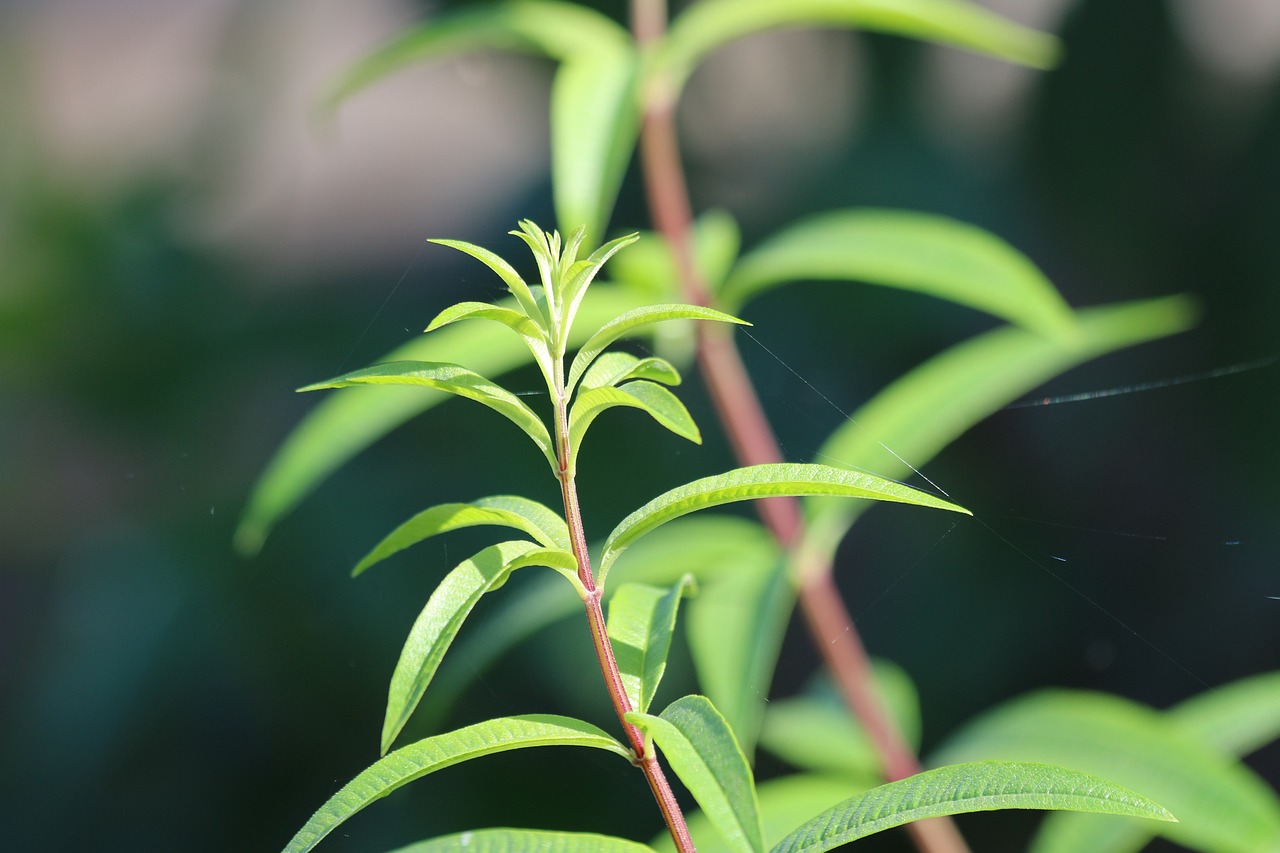Tea is a beloved beverage enjoyed by millions worldwide. But did you know that tea can be made from a variety of plants beyond the traditional tea plant? From soothing herbal blends to exotic foliage, the world of plant uses for tea is both delicious and fascinating. In this guide, we will explore the types of plants used for tea and the many health benefits they offer.
Key Takeaways:
- Tea can be made from a variety of plants beyond the traditional tea plant.
- Herbal teas offer a range of health benefits, from digestion support to relaxation.
- The plants used for tea can contribute to overall well-being and promote a connection to nature.
- Creating your own tea blends using a variety of plants can be a fun and rewarding experience.
- Tea plants can be grown and harvested in an environmentally conscious manner, making them a sustainable choice for tea lovers.
Traditional Herbs for Tea: An Ancient Practice
For centuries, medicinal plants for tea have been used to create relaxing and soothing brews. In fact, herbal tea for relaxation has been a staple in traditional medicine across many cultures.
Chamomile is one of the most popular medicinal plants used for tea due to its calming properties. With its sweet, apple-like flavor, chamomile is renowned for promoting relaxation and alleviating anxiety. Additionally, peppermint is another widely used medicinal plant for tea. Its fresh, minty flavor can help soothe an upset stomach and promote digestion.
Herbal tea can also be created using tea plants and their uses are numerous. Black tea, for example, is derived from the tea plant Camellia sinensis and is known for its energizing effects. Similarly, green tea, also derived from Camellia sinensis, contains high levels of antioxidants and has been studied for its potential to boost metabolism and promote overall wellness.
Overall, traditional herbs and tea plants have been used to create delightful and healthful brews for centuries, making them a timeless and beloved practice.
Exotic Foliage: Unleashing Unique Flavors
When it comes to creating herbal remedies, the potential for tea plants goes beyond the usual selection. Exotic foliage, with their unique flavors and aromas, can offer a delightful twist to your tea blends while providing additional health benefits.
Hibiscus: Immunity-Boosting Tea Plant
Known for its striking red color, hibiscus is not only a beautiful flower but also a potent tea plant. The tart and tangy flavor of hibiscus tea is the perfect blend of refreshment and health. Studies have shown that hibiscus tea can lower blood pressure, reduce inflammation, and boost immunity.
Lemongrass: A Medicinal Tea Plant
With a citrusy and herbal flavor, lemongrass is a tea plant known for its medicinal properties. This tropical plant is believed to aid digestion, reduce inflammation, and relieve anxiety. Lemongrass tea can also be used as a natural insect repellent.
Ginger: A Spice with Health-Boosting Properties
One of the most popular spices in the world, ginger is also a tea plant with many health benefits. Ginger tea is an excellent remedy for nausea, motion sickness, and digestive issues. The spicy flavor of ginger can also help soothe sore throats and reduce inflammation.
Exploring the world of exotic foliage for tea can add a unique touch to your herbal remedies. These tea plants offer a range of flavors, aromas, and health benefits that can enhance your tea experience. Whether you’re looking to boost your immunity, aid digestion, or simply enjoy a flavorful cup of tea, these exotic foliage plants can deliver.
Herbal Tea for Digestion: Soothing Your Stomach
Herbal teas have been used for centuries as a natural remedy for digestive issues. Plants like chamomile, peppermint, and fennel have been found to promote healthy digestion and soothe stomach discomfort.
Chamomile tea, for example, has anti-inflammatory properties that can reduce inflammation in the digestive tract, making it a great option for individuals with irritable bowel syndrome (IBS). Peppermint tea has been found to relieve bloating, gas, and stomach pain, while fennel tea may help stimulate the digestive system and reduce constipation.
Not only do these tea plants provide relief for digestive issues, but they also offer additional health benefits. Chamomile tea, for instance, has been found to have a calming effect and promote relaxation. Peppermint tea can help relieve headaches and improve mental clarity, and fennel tea is believed to have antibacterial properties that may promote overall wellness.
When selecting tea plants for digestive support, be sure to consider their unique properties and potential side effects. As with any natural remedy, it’s important to consult with a healthcare professional before incorporating herbal tea into your routine.
With their soothing properties and added health benefits, tea plants like chamomile, peppermint, and fennel offer a natural and effective way to support healthy digestion. Incorporating these plants into your daily routine can provide a comforting and refreshing way to promote overall wellness.
The Science behind Herbal Tea Health Benefits
Herbal tea has been enjoyed for centuries as a soothing and refreshing beverage, but did you know that it also offers an array of health benefits?
Studies show that different plants used for tea can enhance your immune system, boost metabolism and promote overall wellness. For example, chamomile tea has anti-inflammatory properties and can aid in digestion, while ginger tea is known for its anti-nausea and anti-inflammatory effects.
The compounds found in tea plants, such as flavonoids and polyphenols, contribute to these health benefits by acting as antioxidants and reducing oxidative stress in the body. In turn, this can prevent chronic diseases such as heart disease, cancer, and diabetes.
Furthermore, herbal tea can support immune function by stimulating the activity of immune cells and reducing inflammation. Some plants used for tea, like echinacea and elderberry, are known for their immune-boosting effects.
Incorporating a variety of herbal teas into your routine can provide numerous health benefits. From supporting digestion to enhancing immunity, these tea plants offer a natural way to promote overall wellness.
Crafting Your Own Tea Blends: Tips and Tricks
If you’re looking to create your own unique tea blends, there are a wide variety of plants to choose from. By combining different types of tea plants and herbs, you can create your perfect blend of flavors and health benefits. Here are some tips and tricks to get started:
- Start with a base: Choose a tea plant as the foundation for your blend. Popular choices include green tea, black tea, and rooibos.
- Add herbs for flavor and function: Consider adding herbs like mint, chamomile, and lemongrass to enhance the flavor and add health benefits such as relaxation and digestion support.
- Experiment with flavors: Don’t be afraid to try different combinations of flavor to find your perfect blend. Whether it’s a fruity blend or a spicy one, there are endless possibilities.
- Blend in small batches: When experimenting with new blends, start with small batches to avoid wasting ingredients. Once you’ve perfected your blend, you can scale up.
When crafting your own tea blends, it’s important to keep in mind the health benefits and potential uses of each plant. Some tea plants are better suited for certain health issues than others. For example, ginger and peppermint are both known for aiding digestion, while echinacea and elderberry boost the immune system.
Creating Tea Blends for Herbal Remedies
If you’re looking to create a tea blend with specific health benefits, consider these tea plants:
| Plant | Health Benefit |
|---|---|
| Ginger | Aids digestion, reduces inflammation |
| Peppermint | Aids digestion, relieves headaches and nausea |
| Chamomile | Promotes relaxation, aids digestion |
| Lemon balm | Reduces stress and anxiety, improves sleep |
By combining these plants with others, you can create unique blends with specific health benefits. Remember to keep track of the plants and their quantities in each blend so that you can replicate it later.
With these tips and tricks, you’ll be well on your way to creating your perfect tea blend. Whether you’re looking to relax or boost your health, there’s a tea blend out there waiting for you.
Exploring the World of Herbal Tea Infusions
Herbal tea is known for its calming and relaxing effects, making it the perfect choice to unwind after a long day. There are several types of plants used for tea infusions, each with its own unique flavor and benefit.
Some of the types of plants used for tea infusions include:
| Plant | Flavor Profile | Benefits |
|---|---|---|
| Chamomile | Mild, floral | Calming, helps with sleep |
| Lavender | Floral, slightly sweet | Soothing, stress relief |
| Passionflower | Sweet, slightly tangy | Relaxing, helps with anxiety |
Other popular plants used for tea infusions include peppermint, lemon balm, and valerian root. These plants have been used for centuries to help people relax and sleep better.
When creating your own herbal tea infusion, it’s important to choose plants that complement each other in terms of flavor and benefit. For example, combining chamomile and lavender can create a relaxing and soothing blend that helps with sleep and stress relief.
Overall, herbal tea infusions offer a delicious and natural way to promote relaxation and well-being. Explore the different types of plants used for tea infusions and discover your new favorite blend for ultimate relaxation.
Tea Plants: A Sustainable and Eco-Friendly Choice
Tea plants are not only known for the delightful tea blends they create but also for their sustainability and eco-friendliness. These plants can be grown and harvested in an environmentally conscious manner, making them a responsible choice for tea lovers.
Additionally, many tea plants have medicinal properties that can contribute to overall well-being. For example, plants like chamomile and peppermint can aid in digestion, while other plants like turmeric and echinacea have immune-boosting properties.
By choosing tea plants for our daily tea indulgences, we not only enjoy their delightful flavors and health benefits, but also support sustainable practices and make an eco-friendly choice for our planet.
The Art of Tea Brewing: Enhancing the Experience
Brewing tea is an art that requires patience, skill, and attention to detail. Whether you are steeping tea for its health benefits or to unwind after a long day, it is essential to know how to brew it to perfection. In this section, we will explore the different tea plant benefits and herbal teas for digestion, and how to enhance their flavors through proper brewing techniques.
Understanding Tea Plant Benefits
Each tea plant offers unique benefits that can be maximized through appropriate brewing techniques. Black tea, for example, is known to contain antioxidants that help reduce the risk of heart disease and lower blood pressure. Green tea is rich in catechins, which are natural antioxidants that help improve brain function and reduce the risk of cancer.
Herbal teas, on the other hand, are caffeine-free and offer various benefits. Chamomile, for example, is known for its soothing and calming properties, making it ideal for relieving stress and anxiety. Peppermint tea is also known to aid in digestion and help relieve bloating and nausea.
Brewing Techniques for Herbal Tea for Digestion
Herbal teas are an excellent choice for aiding digestion, and proper brewing techniques can enhance their effectiveness. Start by boiling fresh water and adding the tea leaves or bag to a cup. Let it steep for at least three minutes to release the flavor and medicinal properties of the tea plant. Avoid adding milk or sugar, which can reduce the effectiveness of the tea.
Brewing Techniques for Tea Plant Benefits
For teas made from tea plants like black or green tea, it is essential to pay attention to the water temperature and steeping time to bring out their full potential. Boil water and let it cool for a few seconds before pouring over the tea leaves. Steep for a maximum of three minutes for black tea and two minutes for green tea to avoid a bitter taste. Add honey or lemon to enhance the flavor and health benefits of the tea.
Enhancing the tea brewing experience is all about experimenting with different brewing techniques based on the tea plant benefits and herbal teas for digestion. By using the appropriate techniques, you can extract the maximum flavor and benefits from your tea blends and elevate your tea-drinking experience.
Conclusion
The world of plant uses for tea is vast and fascinating. Each plant offers unique flavors, health benefits, and a connection to nature. Whether you seek relaxation, digestion support, or a boost to your immune system, exploring the diverse plants used for tea will open up a world of possibilities.
By incorporating tea plants and traditional herbs into your daily routine, you can unlock the full potential of nature’s remedies. From chamomile to hibiscus, each plant brings its own magic to the table. The art of tea brewing adds another layer of enjoyment to the experience, making each sip a moment of pure indulgence.
Unleashing Your Creativity
Don’t be afraid to experiment and create your own unique tea blends. With so many herbs and plants to choose from, the possibilities are endless. Combine tea plants with herbs known for their medicinal properties to create the perfect brew for your needs. You can even enlist the help of local herbalists or tea experts to guide you on your journey.
Tea plants are a sustainable and eco-friendly choice, and their contribution to the environment is immeasurable. By choosing plants that are responsibly grown and harvested, you are not only supporting your own health, but also the health of the planet.
So, start your tea journey today and savor the incredible range of plant-infused brews available to delight your senses. Remember, with each sip, you are not only nourishing your body, but also your soul.
FAQ
What are the health benefits of herbal tea?
Herbal teas offer a range of health benefits, including promoting relaxation, aiding digestion, boosting immunity, and supporting overall well-being.
What are tea plants?
Tea plants are plants that are specifically grown and cultivated for the purpose of making tea. They can come in various species and have different flavors and benefits.
What are some traditional herbs used for tea?
Traditional herbs used for tea include chamomile, lavender, and peppermint. These herbs have been used for centuries for their medicinal properties and soothing effects.
Which plants are used for exotic tea flavors?
Plants such as hibiscus, lemongrass, and ginger are commonly used for creating unique and flavorful tea blends.
How can herbal tea aid in digestion?
Herbal teas like chamomile, peppermint, and fennel can help soothe the stomach and promote healthy digestion.
Is there scientific evidence supporting the health benefits of herbal tea?
Yes, there is scientific research that supports the positive effects of drinking tea made from various plants. These studies have shown benefits such as enhanced immune function and metabolism.
Can I create my own tea blends?
Absolutely! By using different types of plants and herbs, you can create your own unique tea blends with flavors and benefits that suit your preferences.
What plants are best for tea brewing?
It depends on the flavor and benefits you’re looking for. Different tea plants offer different flavors and properties, so it’s a matter of personal preference and experimentation.
Are tea plants sustainable and eco-friendly?
Yes, tea plants can be grown and harvested in an environmentally conscious manner, making them a sustainable and eco-friendly choice for tea lovers.
How can I enhance my tea brewing experience?
To enhance your tea brewing experience, you can explore different tea plants and their unique benefits. Additionally, learning the best brewing techniques can help bring out the flavors and health benefits of herbal teas.





Pingback: Exploring Plant Uses for Honey: Natural Sweetness Unveiled
Pingback: Discovering Plant Uses for Perfume: Natural Scents Guide